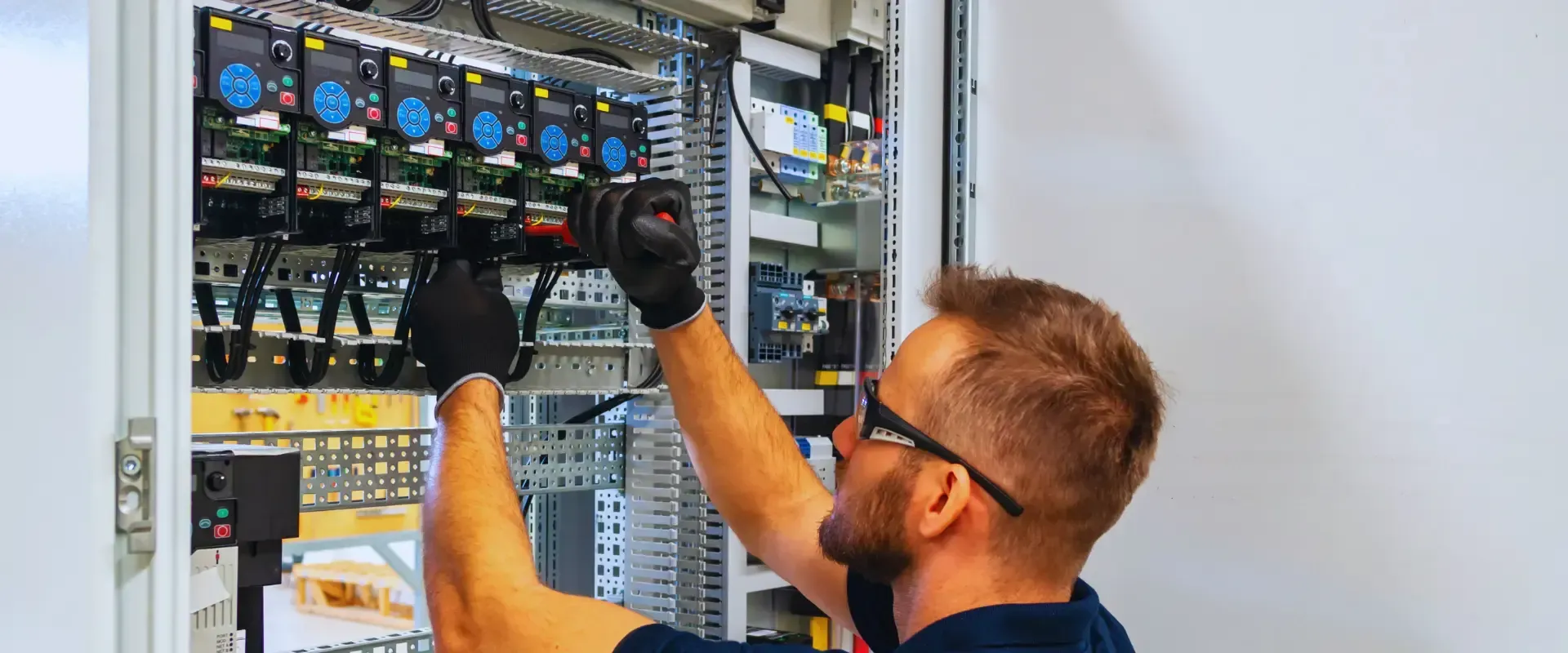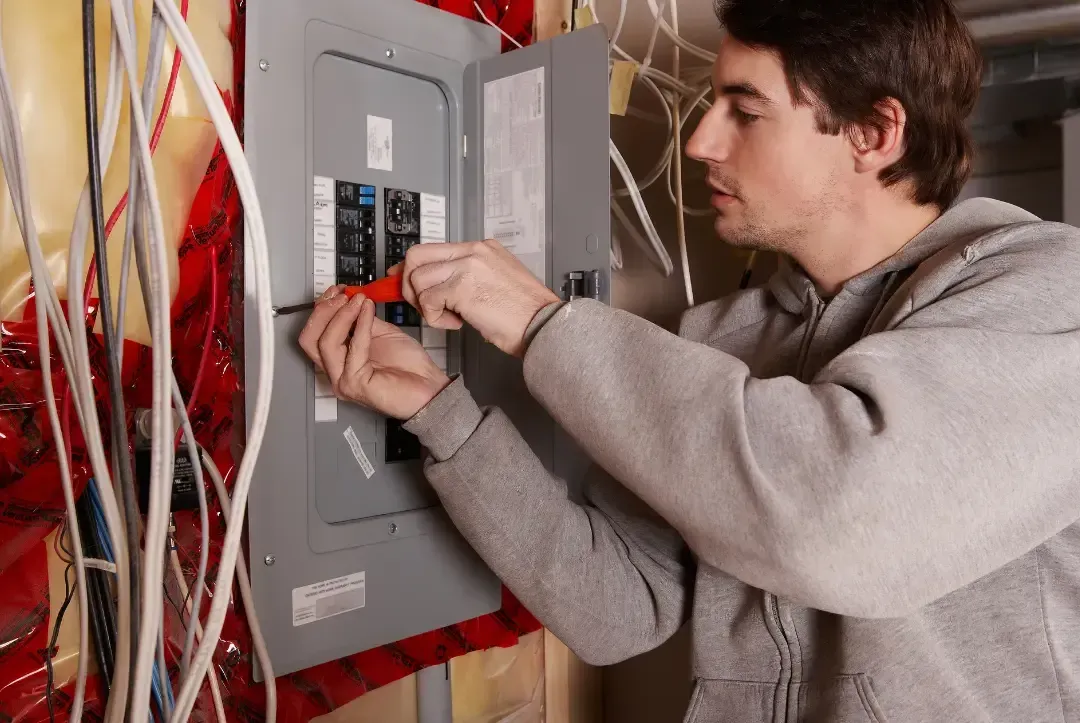(682) 582-5500
info@atelectricllc.com
Avoid These Costly Electrical Mistakes That Could Ruin Your Appliances!
Electricity is a powerful friend in our homes, but one wrong move and it can become a costly enemy. Appliances are essential to our daily lives, from refrigerators to washing machines, and we rely on them to function smoothly day in and day out. However, simple electrical mistakes often overlooked can cause damage, costing us time, money, and a whole lot of frustration. Understanding these common errors will help you keep your appliances in peak shape and safe from preventable damage.
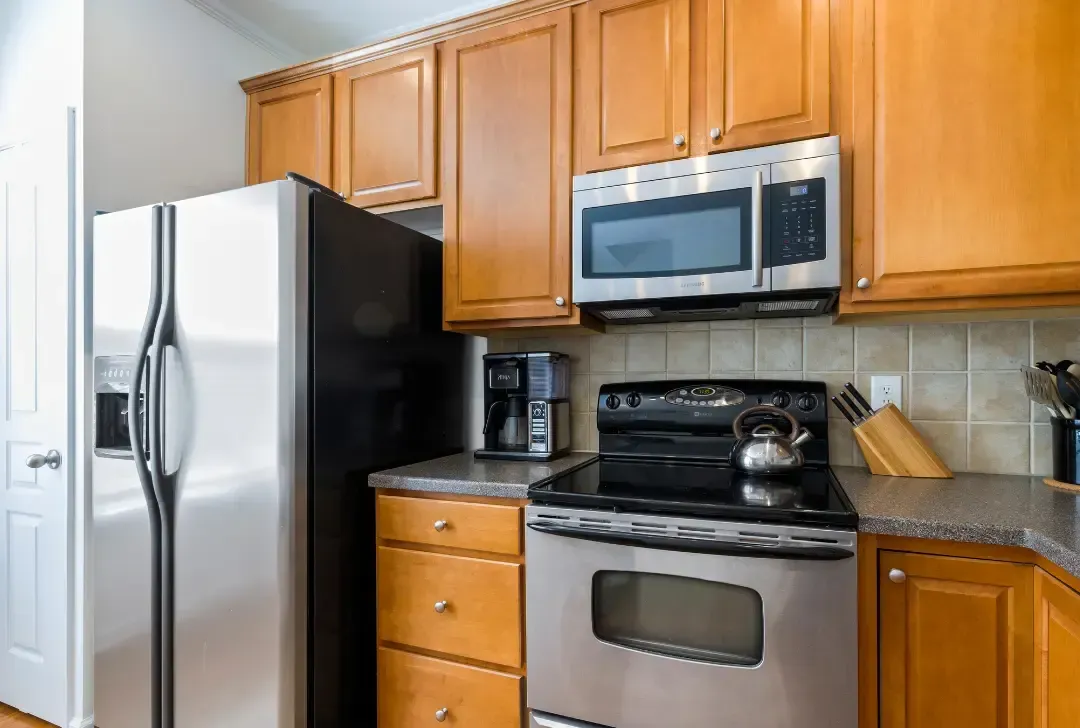
Why Electrical Mistakes Matter in Every Home
Many people underestimate the importance of safe electrical practices, assuming that minor mishaps can’t cause lasting harm. However, these errors can lead to big problems: damaged appliances, increased electric bills, and even electrical fires. Being aware of these potential issues can help you make smarter choices when it comes to protecting your devices, reducing hazards, and keeping your energy expenses under control.
Common Electrical Mistakes That Can Damage Your Appliances
Overloading Power Outlets
Plugging too many devices into a single outlet or power strip is a frequent mistake that many homeowners make. Overloading outlets can cause overheating, which can damage sensitive electronics and even lead to electrical fires. Make it a habit to spread your appliances across multiple outlets and avoid connecting high-power devices, like microwaves or air conditioners, to the same outlet. This simple habit can significantly extend the life of your appliances and improve the safety of your home.
Using the Wrong Extension Cord
Using an extension cord designed for low-power devices on heavy-duty appliances can cause overheating, short circuits, and, ultimately, appliance failure. High-powered appliances such as space heaters, refrigerators, and washing machines need robust, grounded extension cords that can handle their energy requirements. Opt for heavy-duty cords that are certified for such appliances, and always check the label for the maximum load capacity.
Ignoring Loose or Exposed Wires
Over time, wires can fray, loosen, or even get chewed by pets. Loose or exposed wires are more than just an eyesore—they’re a serious fire hazard. Electrical currents can arc through these wires, damaging connected appliances or even causing a fire. Regularly inspect wires in visible areas and replace any that show signs of wear. This small investment in safety can prevent costly appliance repairs or replacements. If you notice frequent issues with wiring, consider contacting a licensed electrician for a professional inspection.
Not Using Surge Protectors
Power surges are sudden spikes in voltage that can fry your appliances in an instant. These can be caused by storms, power outages, or even large appliances cycling on and off. Surge protectors act as a buffer, absorbing excess electricity before it reaches your devices. For items like TVs, computers, and gaming consoles, investing in quality surge protectors can save you from the nightmare of unexpected replacements. For enhanced protection, explore options like whole home surge protection to safeguard all your devices at once.
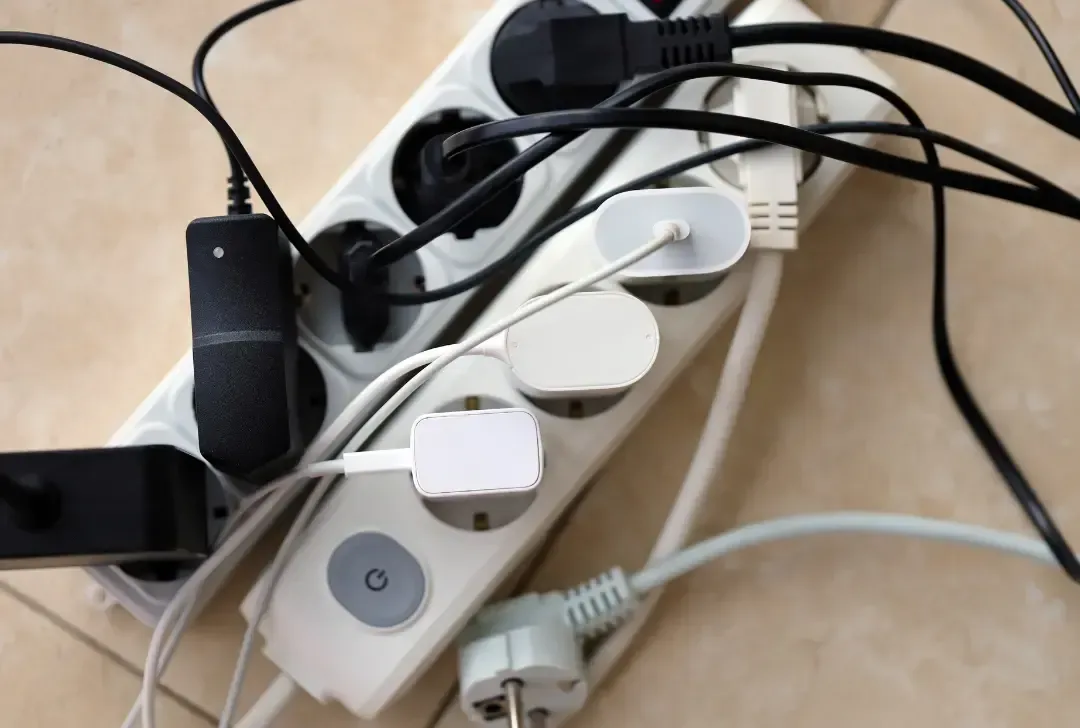
Incorrectly Installed Electrical Fixtures
When you’re adding or replacing electrical fixtures, installing them improperly can cause serious issues. For instance, a poorly wired ceiling fan could cause circuit overloads, leading to damages down the line. Always hire a licensed electrician for installations, especially for large fixtures. This ensures safe installation, protecting both your devices and your family.
Running Cords Under Rugs
Although it might seem harmless, running power cords under rugs or furniture can be extremely dangerous. Cords can overheat when covered, and their insulation can wear out more quickly. This increases the risk of short circuits and could lead to appliance damage or, worse, fire hazards. Instead, arrange your furniture to allow cords to stay visible or use cord covers to keep them safely out of the way.
Leaving Appliances Plugged In During Storms
Lightning strikes or power surges during a storm can be incredibly damaging. Leaving appliances plugged in during a storm can expose them to these sudden surges, often resulting in fried circuits. Unplug devices like computers, TVs, and other electronics during severe weather, or consider investing in whole home surge protection for year-round protection.
Misusing Fuses and Circuit Breakers
If a fuse blows or a circuit breaker trips, it’s easy to replace or reset it and move on. However, regularly overloading circuits can wear down your system, damaging your appliances and increasing fire risks. Ensure that your home’s electrical load is balanced, and avoid quick fixes like using oversized fuses, which can overheat wiring. When in doubt, consult a licensed electrician for advice.
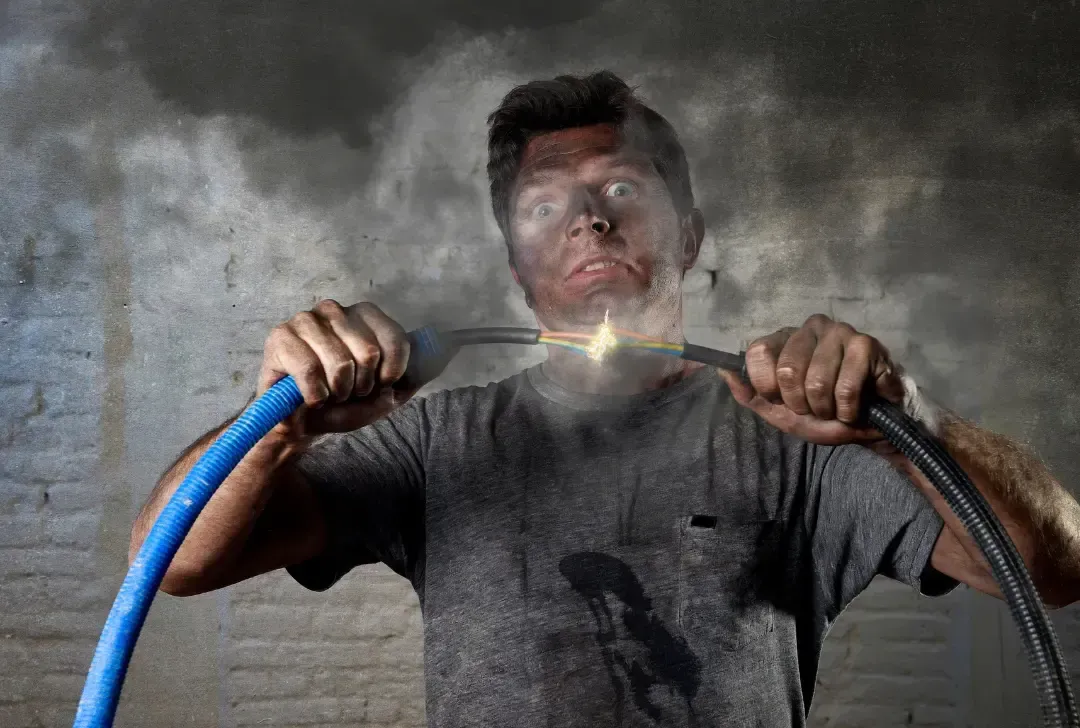
How to Prevent Electrical Mistakes
Use Smart Power Strips
Smart power strips can sense when a device isn’t in use and cut off power, helping prevent overloads and saving energy. These strips are perfect for home offices or entertainment centers, where multiple devices are used and left plugged in. By using these smart strips, you protect your appliances from unexpected power spikes while also cutting down on your energy bill.
Consider Professional Electrical Maintenance
Just like any other part of your home, your electrical system benefits from periodic maintenance. A licensed electrician can identify problems that you might miss and offer solutions to prevent further issues. Regular maintenance can ensure that your home’s wiring is in optimal condition, preventing electrical mistakes before they lead to appliance damage.
Avoid DIY Electrical Work
While it can be tempting to fix minor electrical issues yourself, unlicensed electrical work often leads to more harm than good. Incorrect wiring, improper grounding, or insufficient insulation are all common DIY errors that can damage appliances and create serious safety hazards. Always call a professional for electrical repairs or installations, no matter how simple the task may seem.
Protect Your Appliances with These Simple Tips
Keep Appliances Clean and Well-Maintained
Appliances tend to work best and last longer when they’re clean and well-maintained. Dust and debris can affect circuits, causing them to overheat. Make it a habit to clean your appliances regularly and keep the area around them clutter-free. For larger appliances, check their user manuals for maintenance tips.
Check Wattage Compatibility
Each appliance is designed to handle a specific voltage or wattage, so plugging it into an incompatible outlet can cause permanent damage. Check the power ratings on your devices and ensure your home’s outlets can safely supply the required voltage. This extra step can prevent both overheating and energy inefficiency. If you’re unsure about your home’s capacity, look into electrical panel upgrades for added safety and support.
Invest in a Whole-Home Surge Protector
For long-term appliance safety, a whole-home surge protector is worth considering. Installed at your home’s main electrical panel, this device will protect every outlet in the house from power surges. It’s especially valuable for homes in storm-prone areas or with sensitive electronics.
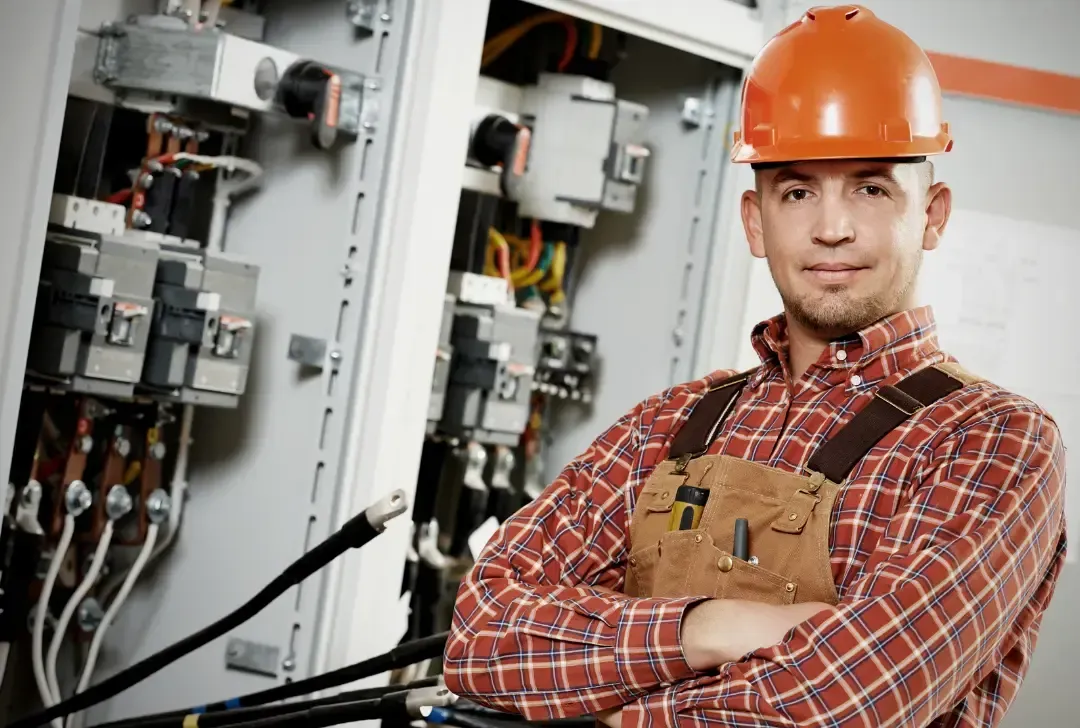
Frequently Asked Questions
Can I use any extension cord with my appliance?
No, you should only use heavy-duty extension cords for high-powered appliances like refrigerators or space heaters. Using the wrong type can lead to overheating and damage.
Is it safe to leave my devices plugged in overnight?
While many devices can stay plugged in, it’s best to unplug electronics that aren’t in use, especially during a storm. This reduces the risk of power surge damage.
How often should I check for loose wires?
Ideally, inspect your appliance cords and wiring every few months. This helps you catch wear and tear before it causes appliance or wiring issues.
Are surge protectors really necessary?
Yes, surge protectors can save you from costly replacements. They act as a buffer against voltage spikes, which can ruin sensitive electronics.
What should I do if a fuse keeps blowing?
Repeatedly blown fuses are a sign of an overloaded circuit or faulty wiring. It’s best to consult an electrician to diagnose and fix the issue.
Is DIY electrical work safe?
DIY electrical repairs can lead to mistakes that damage appliances or create fire hazards. Always hire a licensed electrician for any electrical work in your home.
Conclusion
By avoiding these common electrical mistakes, you’re not only protecting your valuable appliances but also ensuring a safer home. Implementing these tips may seem simple, yet they can prevent unnecessary expenses and headaches. Remember, electricity is powerful, and respecting its potential for harm will keep your home and appliances in optimal condition. With a few smart choices and proactive habits, you’ll enjoy long-lasting, dependable appliances that serve you well for years to come.

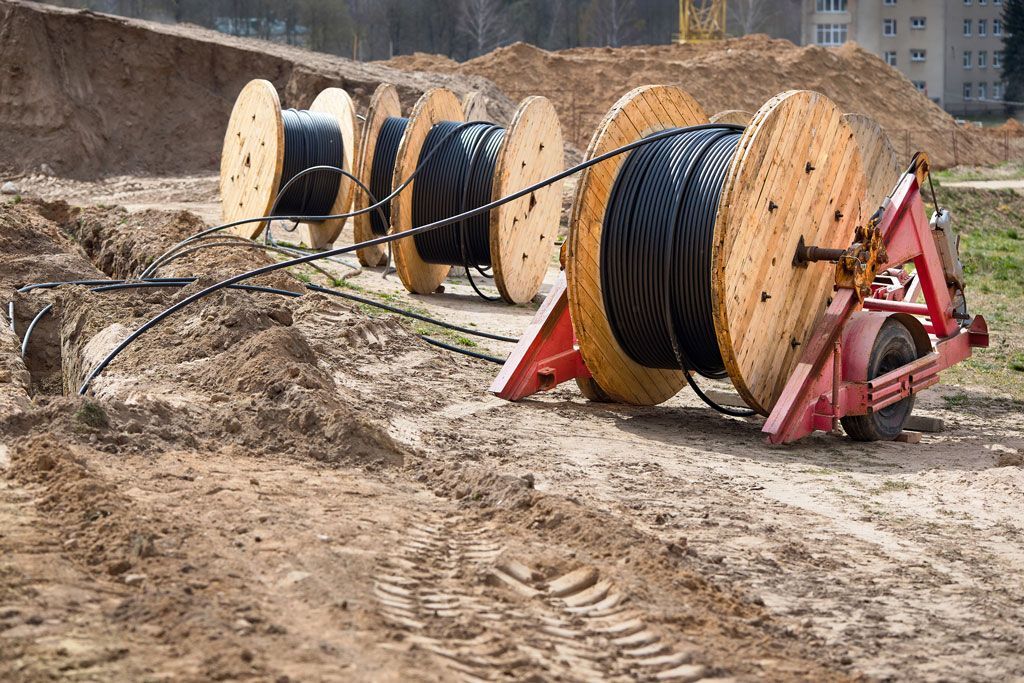
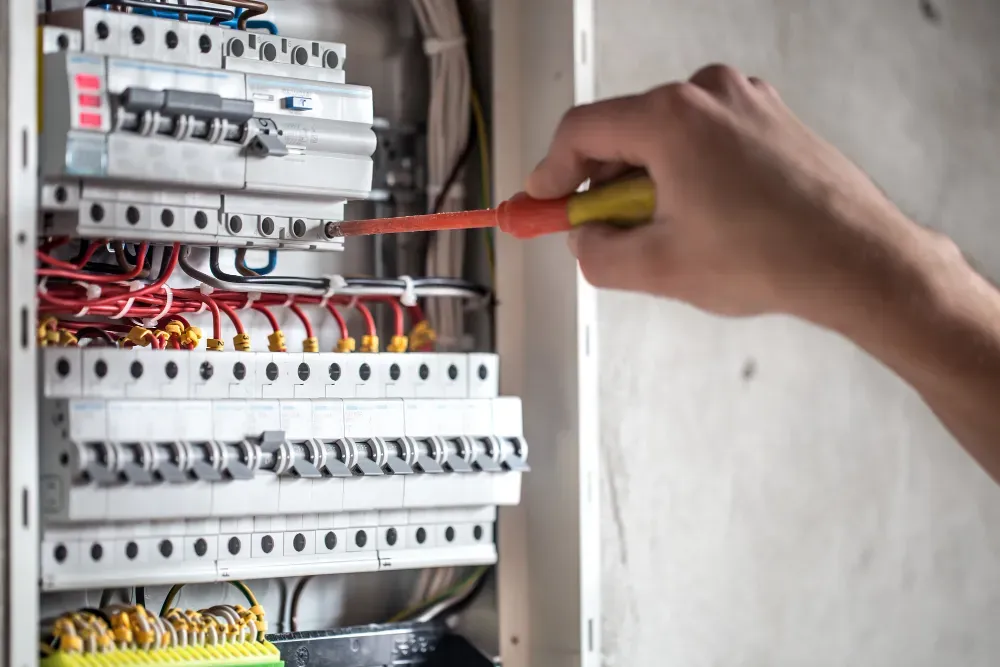
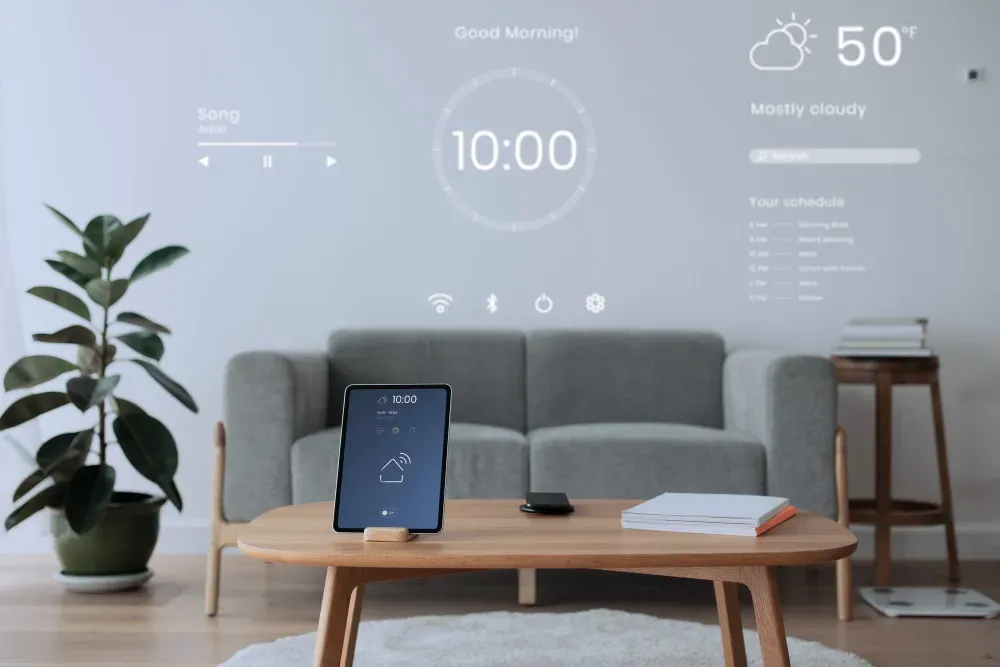
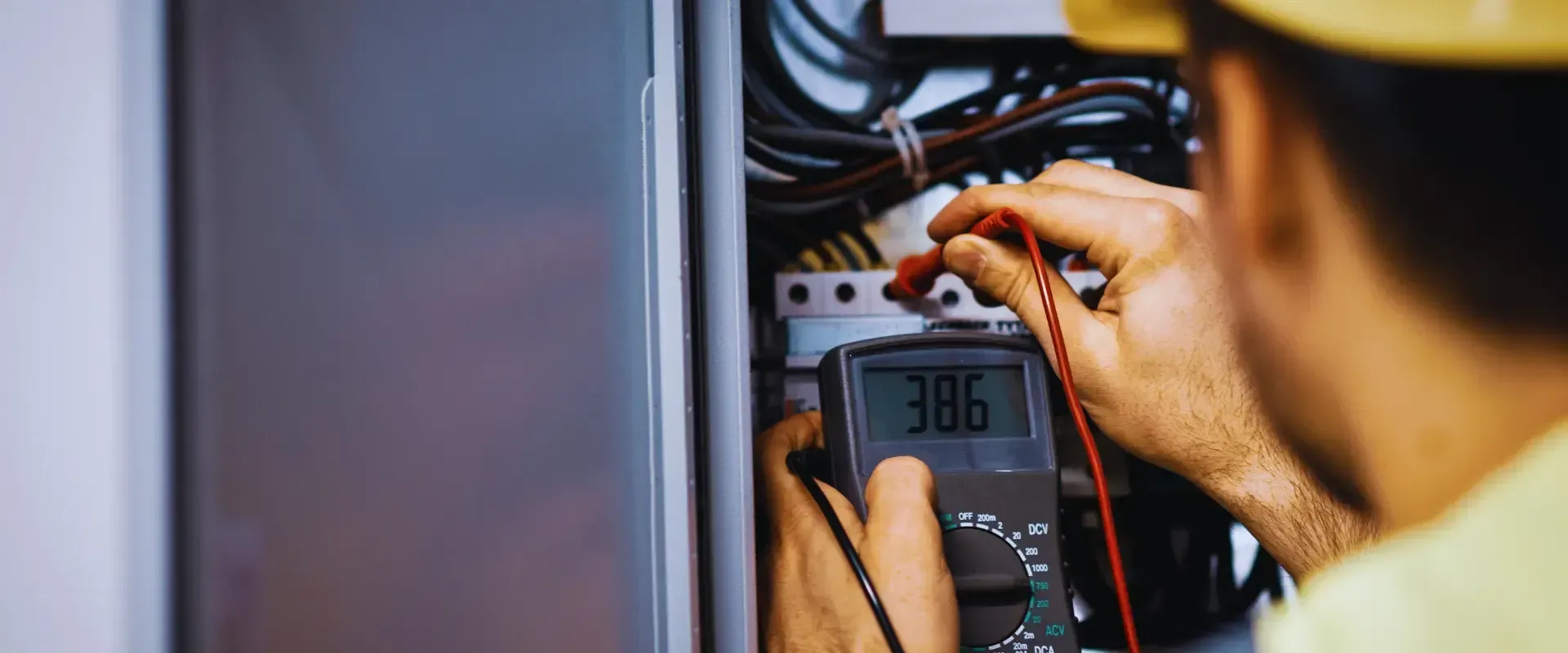
Everything You Need to Know About A.T. Electric LLC Services: Your Trusted Mansfield, TX Electrician
